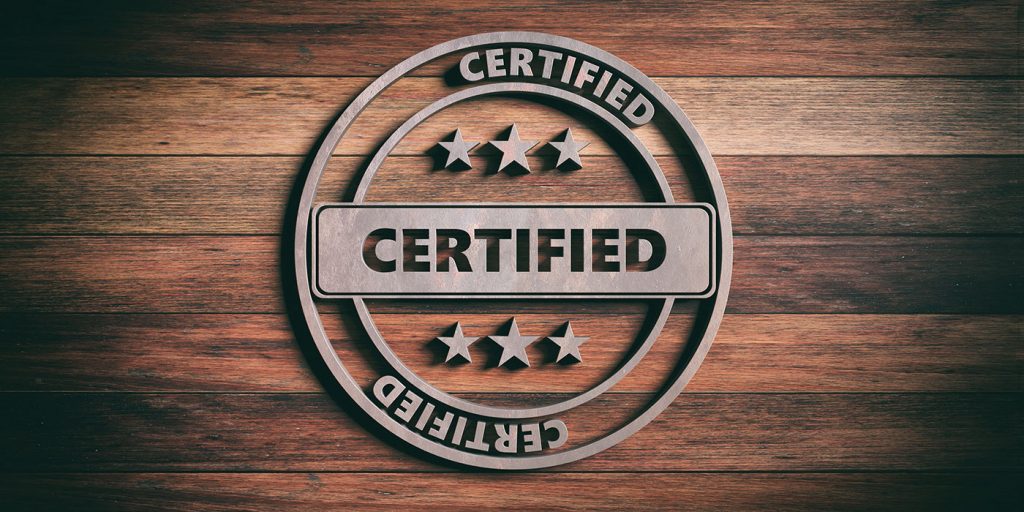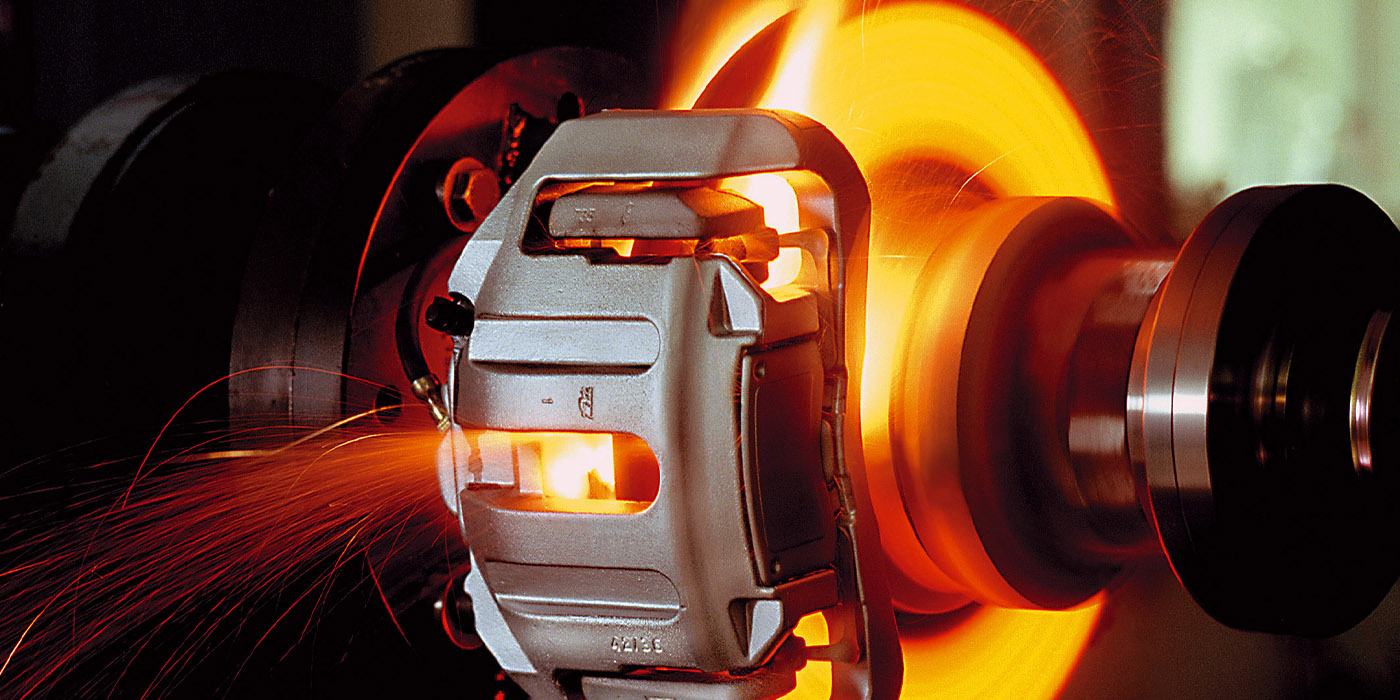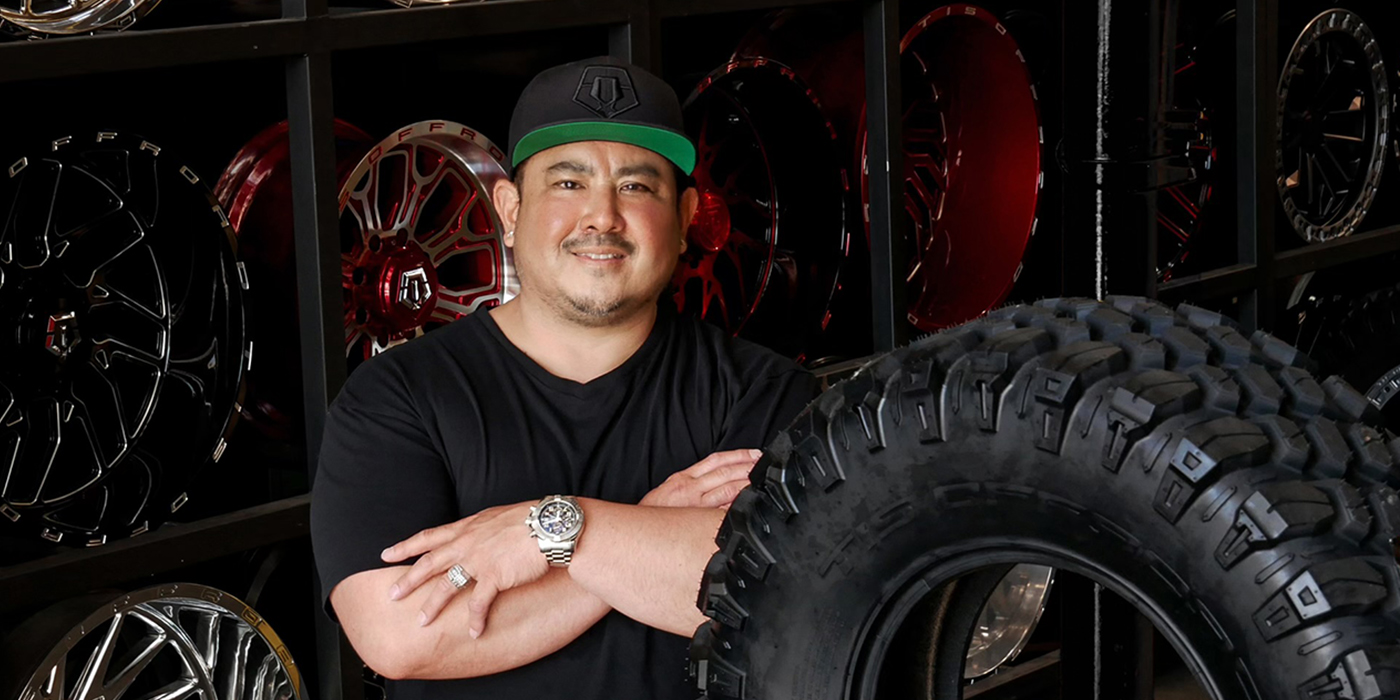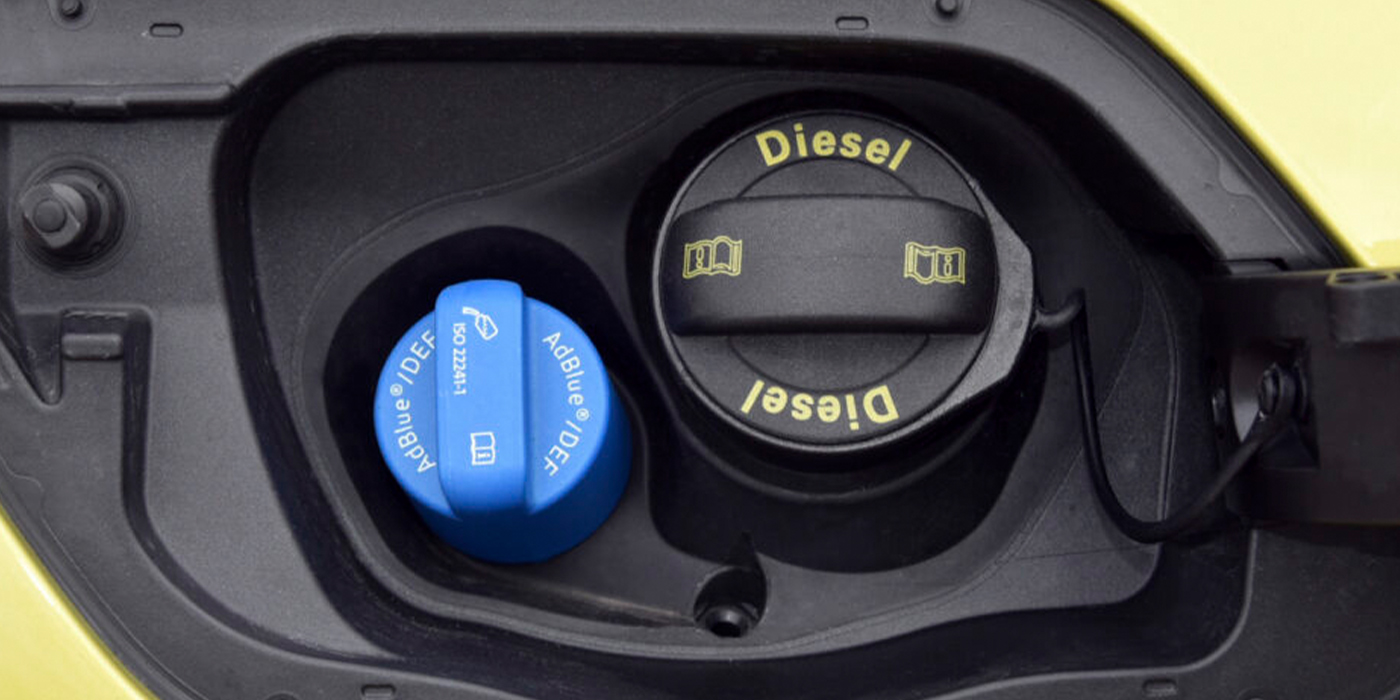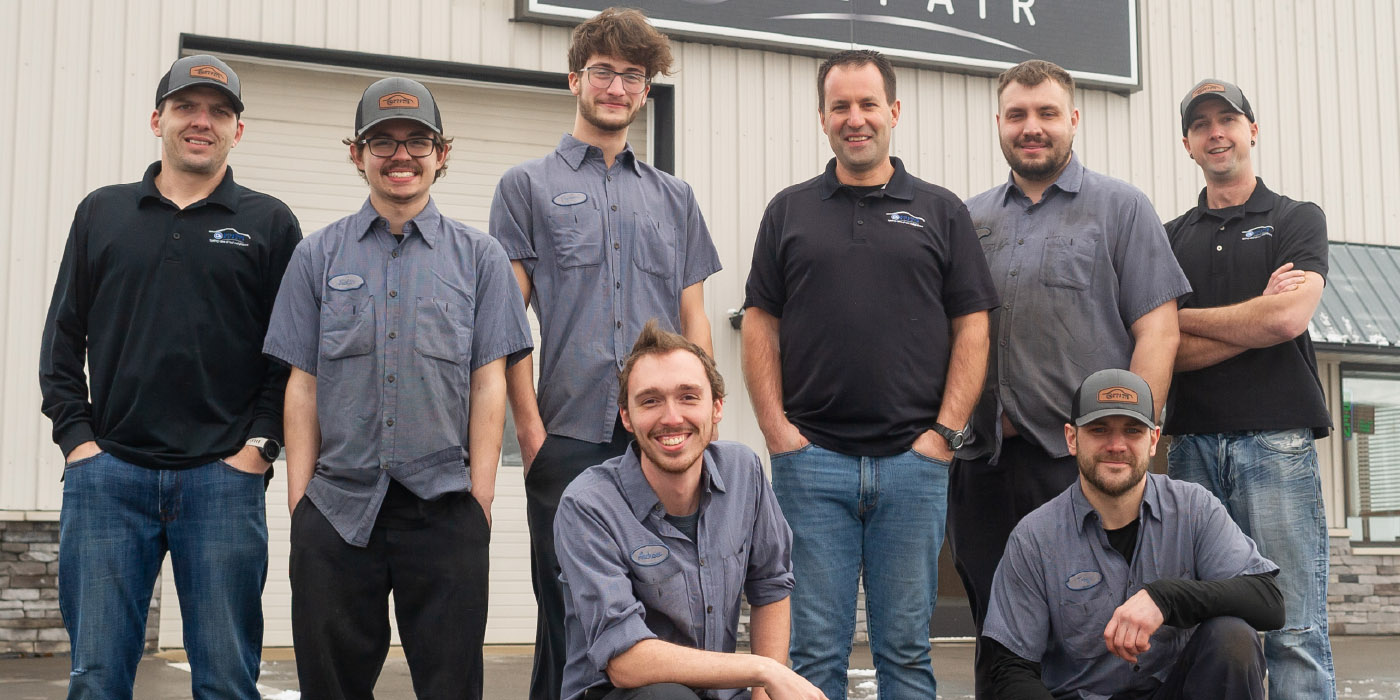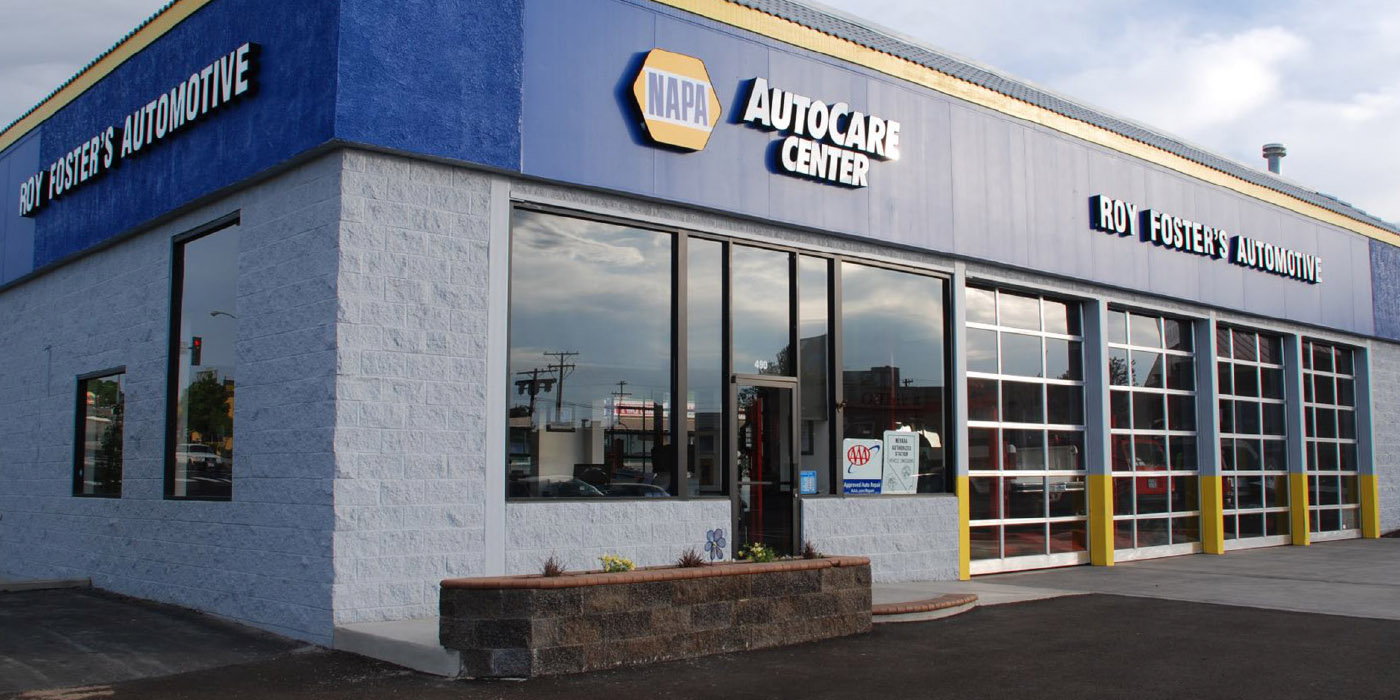Lead by example. That’s the philosophy of Bill Baxter and Ty Miller, co-owners of ProTech Autocare in Cincinnati. These days, they spend most of their time managing the business rather than turning wrenches. Even so, Baxter and Miller have maintained their status as ASE-certified master technicians.
“I know many shop owners, and some of them barely know the difference between a Phillips and a flathead screwdriver – yet they’re still successful owners,” Miller says. “But we do have the expectation of our technicians continuing to train, continuing to grow and being able to maintain their relevancy out in the shop.
“And what better way to help lead them than to lead by example, to maintain our ASE certifications to show them that it is important. I think it really does separate the professionals in the industry from the people who are just there twisting a wrench daily, doing what they do.”
ProTech Autocare “strongly encourages” technicians to attain ASE certification, Baxter adds. When they do, they get a pay increase.
“ASEs are a big part of the success in our business,” Baxter says. “ … I think what [ASE certification] does is it teaches you the fundamentals of the business, and then experience kind of takes over from there. And that’s what leads to you becoming a great technician.”
Brooks Farrar, co-owner of Empire Auto Care in Fort Lauderdale, Florida, also encourages his technicians to become ASE-certified. He views training and certification as fundamentals of success for the 14-bay shop, which has been growing steadily since opening in 2016.
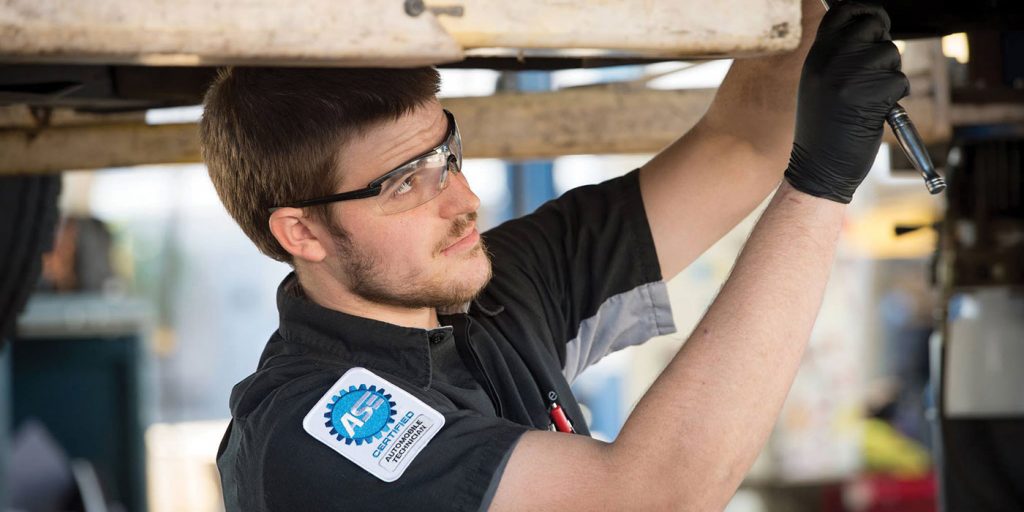
“I encourage ASE certification not because it means [certified techs are] better, but it’s the only thing the technicians have that tells people that they’re committed to their career,” Farrar says.
When we talk to shops that are thriving in their respective markets, one of the common denominators is ASE certification. Typically, these shop owners encourage their employees to obtain it, and many of these owners were – or still are – ASE-certified techs themselves. You might even say they view certification as a core value, just as they consider honesty, integrity and quality to be core values.
On their respective websites, ProTech Autocare and Empire Auto Care mention that they employ ASE-certified technicians. But generally speaking, are shops doing enough to maximize the marketing value of ASE certification? And what does the ASE symbol mean to customers when they see it in a shop or in a shop’s marketing content?
“Well first of all, let’s remember that ASE was created by the industry for the industry, so this is your credential,” says Trish Serratore, ASE’s senior VP for communications. “I think our industry kind of forgets sometimes that we have our very own credential created by us, for us, to help differentiate quality auto repair against the fly-by-nights and shade-tree mechanics, whatever you want to call them. So I think it’s important for us to remember that we’ve got this credential and we need to use it and showcase it because it’s important.”
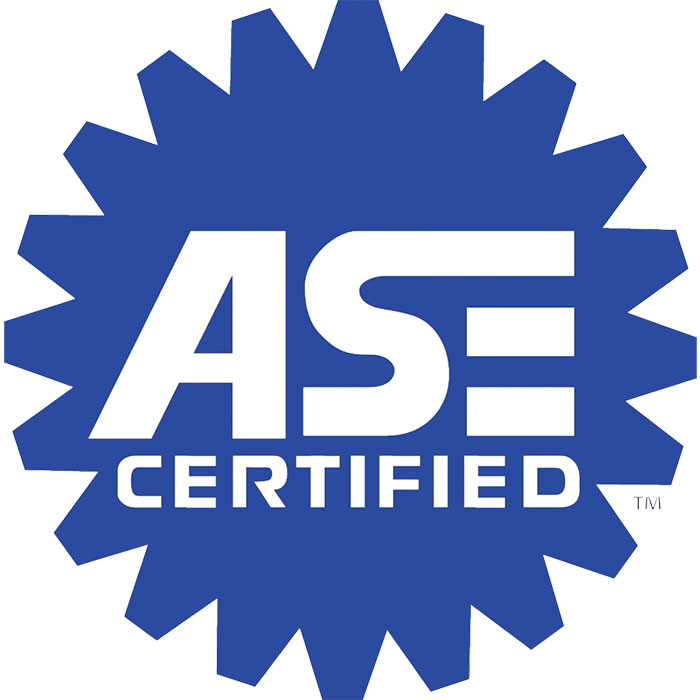
Founded in 1972, the nonprofit National Institute for Automotive Service Excellence (ASE) “promotes excellence in vehicle repair, service and parts distribution,” according to the ASE website. The organization’s purpose is to “protect the automotive service consumer, shop owner and the automotive technician” by testing and certifying automotive professionals so “shop owners and service customers can better gauge a technician’s level of expertise before contracting the technician’s services.”
“It is an ability for businesses to differentiate themselves from others in the community,” Serratore explains. “And it is that third-party independent validation that their technicians can fix it right, can be effective and are concerned about their car-owner customer’s safety.”
Nationwide, there are 182,228 ASE-certified automobile technicians, according to statistics on the ASE website. If you include specialties such as service advisors, collision repair and refinish techs, parts specialists and medium- and heavy-duty truck techs, there are 245,660 ASE-certified service professionals. (These statistics are updated once a year in July.)
There are a number of ways that shops can let customers know that they employ ASE-certified technicians. Through ASE, shops can purchase a variety of ASE-logoed items (indicating various ASE certifications and levels), such as bay banners, plaques, signs, sew-on patches, window decals, recognition frames, lapel pins and even a wall clock. Shops can showcase the ASE insignia on coupons, work orders and other print materials, and they can download the ASE logo for their websites.
Shops in the Blue Seal of Excellence program – that’s for shops where at least 75% of the technicians are ASE-certified – can proudly convey their certification level with a sign that includes the date of their last audit, showcasing the fact that they’re audited every year to maintain their Blue Seal status. The ASE website, www.ase.com, also includes a shop locator to help consumers find Blue Seal shops in their area.
What else can shops do to maximize the marketing value of their ASE certifications? Serratore sees social media as a low-hanging fruit.
“If you have a Facebook page, it’d be great to feature your certified techs maybe once a month,” she says. “Call it ‘Technician Tuesday’ and focus on one of your ASE-certified techs – showcase his talent, training and certification to your customer base. Let people know he’s the go-to guy to get your car fixed and serviced safely and properly. That’s a great way of promoting your business without saying, ‘Here’s a $10 coupon for an oil change.’ Customers don’t always get a chance to meet the technician who works on their car. This is a chance to put a face to the repair, if you will.”
Thanks to social media, consumers now have a powerful voice to express their feelings if they’ve been underwhelmed by your service (or someone else’s service), and they’ve been emboldened to demand quality from the businesses that they patronize. Serratore believes this is the perfect time to showcase your commitment to professional certification.
“I think we’re hearing more and more today that … they want to be able to identify quality, however that looks – at their doctor’s office, at their daycare center, at their CPA, wherever that might be. And the ASE certification of the professionals in an independent repair shop is that credential they’re looking for.”

